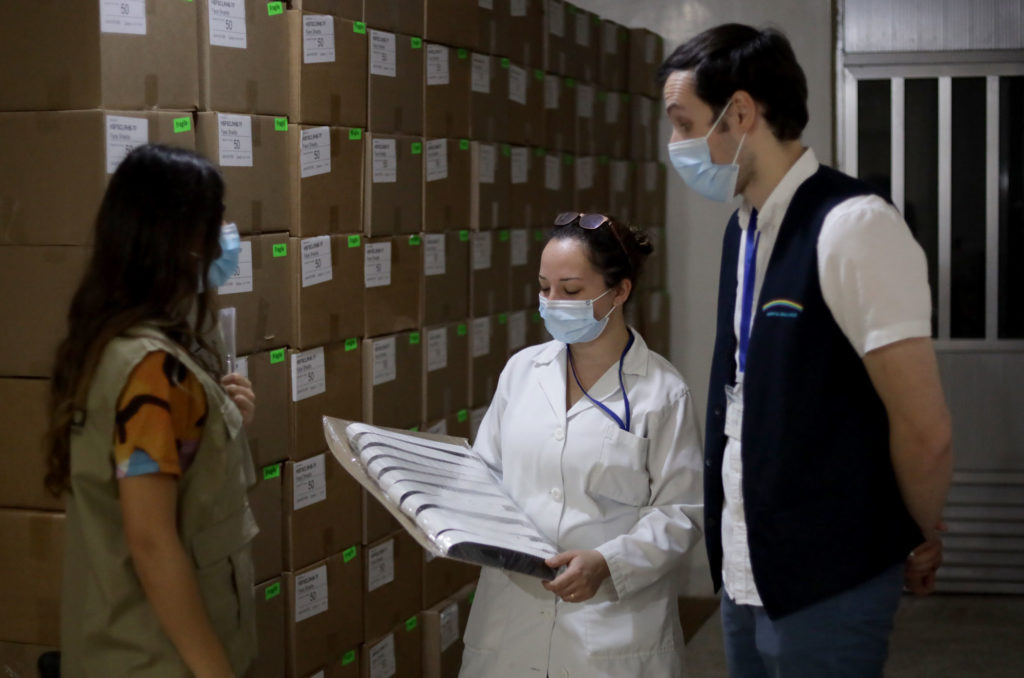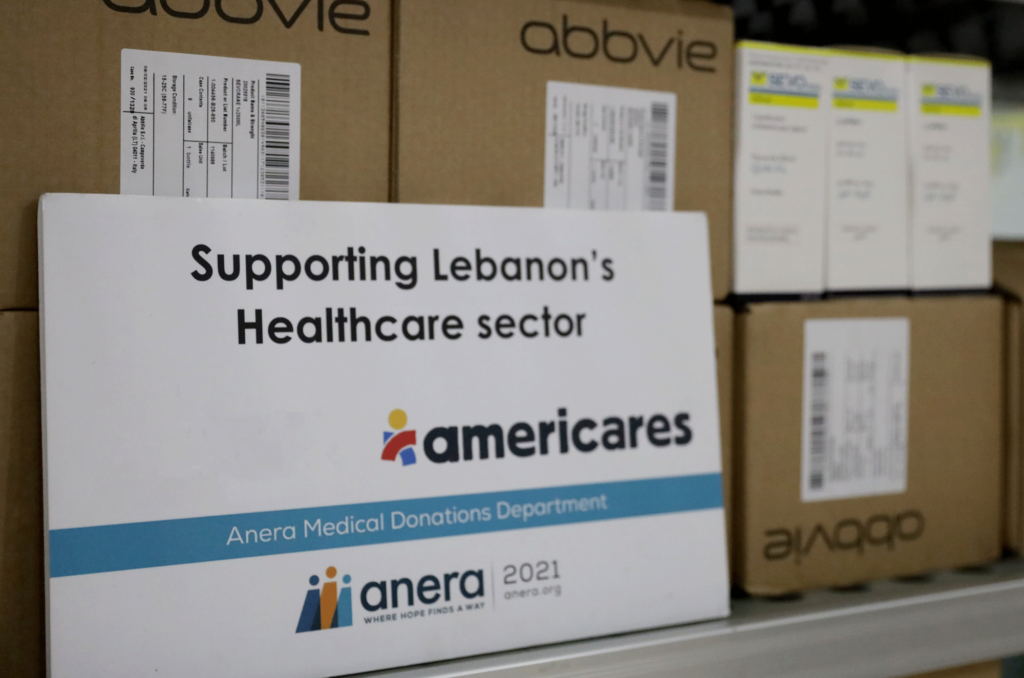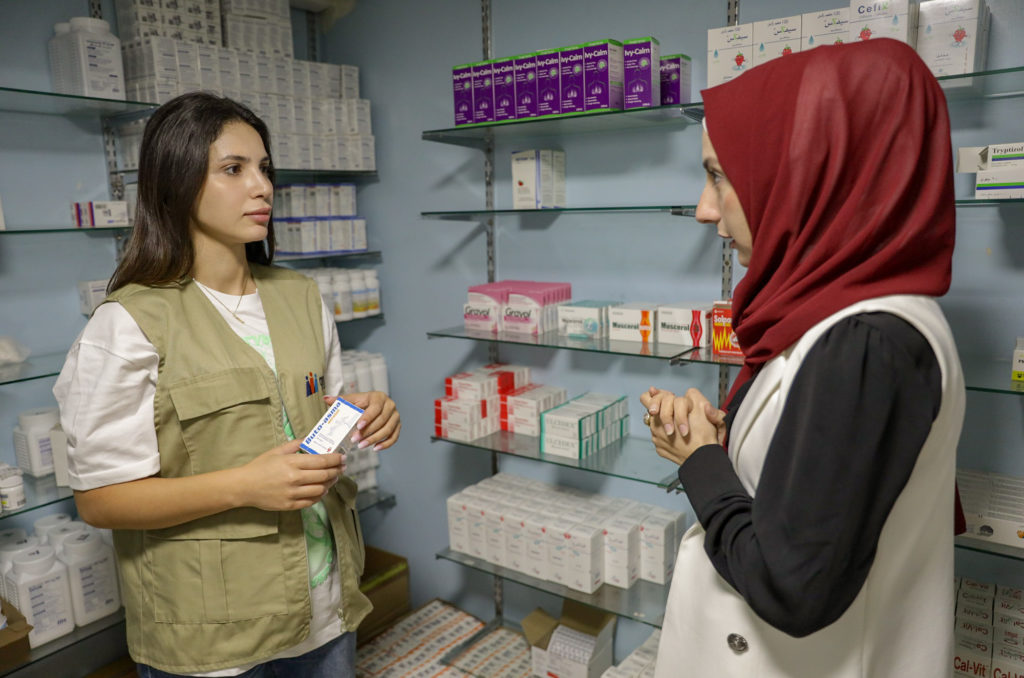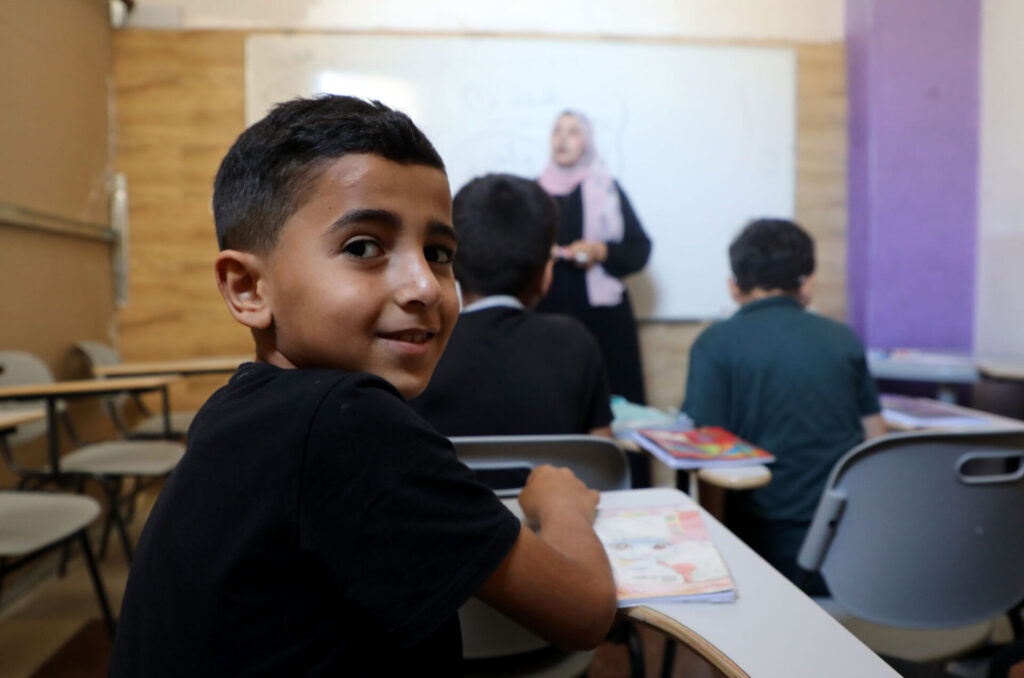Dec, 2022
Medical aid donations from Americares help deliver hope to patients with long-term medical conditions in the Middle East
The prevalence of chronic diseases like Type 2 diabetes, pneumonia, asthma, and others in Lebanon and Palestine is highly concerning. Refugees in Jordan, Lebanon, Gaza and the West Bank live in challenging and unhealthy conditions, increasing their risk of developing health problems. In these circumstances, it is logistically and financially difficult to provide displaced individuals with ongoing, consistent care.
Chronic diseases require prolonged, ongoing medical treatment. Chronic diseases usually progress slowly and are treatable but not curable. The broadly-recognized kinds of chronic diseases include cardiovascular ailments like heart disease and strokes, cancers, respiratory diseases like asthma, arthritis and diabetes mellitus. Chronic illnesses are often caused by a mix of genetic and environmental factors.
Air pollution, food and water insecurity, and nonexistent or inadequate access to facilities for exercise are metabolic, environmental, and behavioral factors that can lead to chronic diseases. As 85-90% of Gaza lives in poverty and Lebanon’s economy worsens, many people in the Middle East are particularly vulnerable because they lack the resources necessary to combat these illnesses.
Approximately 66% of Palestinians report at least one cardiovascular condition like high blood pressure, 40% report at least one endocrine condition like diabetes, and 32% report at least one musculoskeletal condition like arthritis. Some 15% of refugees aged over 40 are diagnosed with Type 2 diabetes in Gaza and more than half of the adult population of refugees in Lebanon are likewise diagnosed.


In Lebanon, the cause of approximately 91% of all deaths are chronic diseases. Chronic diseases impact 16% of adult Syrian refugees in Lebanon. Meanwhile, out of the 6% of Lebanese adults with asthma, air pollutants caused 60 and 80 percent of cases.
Three Major Conditions Causing Chronic Illness
The increasing burden of chronic diseases is a reflection of changing lifestyles and inadequate investments in public health infrastructure. In Palestine, Lebanon and Jordan, the vulnerable populations that Anera serves often live in unsanitary, polluted areas. Families are exposed to unhealthy conditions like air pollution, polluted water supplies and food insecurity, three of the leading environmental causes of illness, including chronic diseases, in the Middle East.
Air Pollution
Exposure to air pollutants, like nitrogen or ozone, is linked to heart disease, chronic obstructive pulmonary disease, lung cancer, lower respiratory infections, premature birth, type 2 diabetes, stroke and asthma.
The number of premature deaths caused by fossil fuel pollution in Lebanon in 2018 was 2,700 – or a rate of four deaths per 10,000 people – among the highest in the region.
The main sources of air pollution in Palestine, on the other hand, are the various means of transportation. There are 60,000 old vehicles with high emissions on the road. Smoke from factories, heavy dust from quarries, and burning waste also contribute. Industrial plants in Gaza and the West Bank are the largest cause of air pollution in Palestine as are the generators which families and institutions rely on during frequent electricity outages. There are about 100,000 generators in use throughout Gaza, consuming some 500,000 liters of fuel per day. This fuel is burned and released into the outside air or even inside people’s homes.
Water Security
Communities across Palestine, particularly in Gaza, also face a chronic scarcity of water. Stores of freshwater are getting depleted and water processing systems in vulnerable communities are often run-down and unable to provide water to all surrounding communities.
In the West Bank, cesspits and agricultural activities, such as fertilizing, pollute groundwater in rural areas. In Gaza, old and poor filtration systems, poor infrastructure and leaks make polluted water a leading cause of death among children and the reason that 26% of illnesses are from dirty water. Waterborne illnesses include chronic and acute diseases like cholera, giardia, polio, and viral meningitis. High nitrate levels in Gaza’s water supply also cause hypertension, renal failure, and methemoglobinemia.




Diet Practices
The traditional Mediterranean diet is widely touted as one of the healthiest in the world. However, Mediterranean countries like Palestine and Lebanon have shifted away from their traditional diets. Like much of the world, they now consume many ultra processed foods.
The changing economics of food systems explain some of the patterns. Food security is a major issue in Palestine and Lebanon. Since the blockade of Gaza started in 2007, the economy of the territory has been stagnating. Add to this intermittent bombings and a global pandemic and you have a recipe for food insecurity. More than two-thirds of Gaza’s two million residents are food insecure. The vast majority of people rely on aid just to get by. The difficult circumstances compel many to opt for cheaper foods and unbalanced diets high in starches. Children in particular are vulnerable. Without a properly nutritious diet, children often have poor concentration in school, and suffer from eating and sleeping disorders.
Lebanon too has undergone a shift in its food culture. The globalization of food systems and eating habits, however, have led to more consumption of the processed foods and beverages of western diets. Lebanon is also highly dependent on food imports, leaving the country extremely vulnerable to global food price shocks. Economic decline has depleted food supplies and increased costs, with prices of many traditional, healthy ingredients increasing drastically. More than 55% of the population lives below the poverty line and sustaining a Mediterranean diet rich in fresh produce is largely out of their reach.
Medicine Shortages
One of the big challenges in Palestine is movement – movement of goods and people. Restrictions imposed by occupation stymie the whole economy and badly impact the healthcare system, in part because they create shortages in medical supplies. Patients with chronic diseases are among the most vulnerable because they rely on regular and consistent supplies of medicines to treat their conditions.
Some 50% of patients in Gaza go without vital treatments, forcing many to self-medicate with inadequate medicines that fail to actually treat their illnesses. This is especially true of elderly residents, who represent two-thirds of those with chronic diseases
Some 50% of patients in Gaza go without vital treatments, forcing many to self-medicate with inadequate medicines that fail to actually treat their illnesses. This is especially true of elderly residents, who represent two-thirds of those with chronic diseases
Lebanon imports 80% of the drugs used in their healthcare system. The national budget for the Ministry of Health has lost most of its purchasing power since the currency crash. The result is shortages of most medicines, causing many hospitals to postpone treatments and non-essential surgeries. The majority of people are unable to get healthcare or medicines. And, short of a national plan action, Lebanon’s healthcare sector will only plunge further into the crisis.
Providing Medicines for Chronic and Acute Diseases
Anera prioritizes delivery of medicines that treat acute and chronic diseases, including cancer. Many other organizations focus on procuring and distributing medicines and medical supplies for acute or emergency conditions. By delivering chronic disease medications, Anera ensures that healthcare providers in vulnerable communities are able to treat chronic conditions without gaps in care. This brings dignity and improvements in the quality of life for individuals who cannot afford costly medicines that need to be taken over time.
Over the course of just the last eight months, Americares donated six shipments of medicines to treat chronic and acute diseases. Anera restocked shelves at charitable clinics and hospitals across the West Bank, Gaza and Lebanon. The medicines treat conditions like diabetes, pneumonia, and chronic obstructive pulmonary disease. And there are another nine shipments in the works.
Americares and Anera have partnered for 30 years to deliver vital medicines and healthcare supplies in the Middle East. Thank you for your unwavering support of Palestinians, Lebanese, Syrians, Jordanians and all those living in disadvantaged communities!


